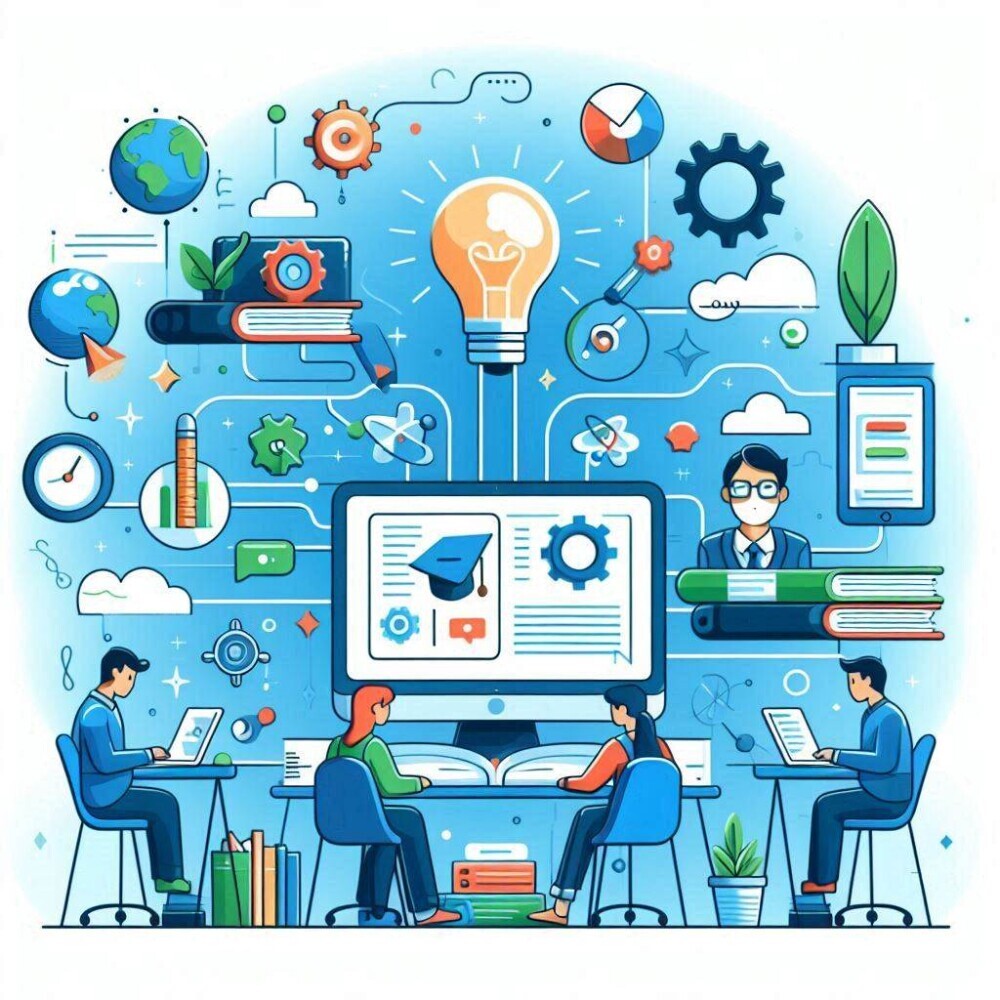Self-directed learning is all about taking your education into your own hands, crafting a personalized journey of discovery. In today’s world, this approach is more influential than ever, especially with a growing need for flexible education methods. Whether it’s picking up a new language or mastering a complex skill, this style of learning empowers individuals to set their own goals and pace.
A recent study from the Home School Legal Defense Association (HSLDA) sheds light on how technology is a massive game-changer in this arena. It highlights how tech tools and online resources are igniting a passion for self-directed learning like never before. The study’s findings are a wake-up call, showing a significant boost in learners taking the reins, choosing what, when, and how they learn. This shift is partly due to the internet making information super easy to access.
This post may contain affiliate links. When you click and purchase from any of our links, we may get a small commission at no extra cost to you. For more information, please see our affiliate disclosure.
Why does this matter? Because mastering self-directed learning requires self-motivation and determination. With the right tech tools, people are finding it easier to stay on track and focused. Instead of waiting for the perfect course or class, they’re diving into materials via countless online platforms, crafting unique educational paths that cater to their personal interests and needs.
By harnessing tech, we can see a future where learners are more engaged and empowered, choosing paths that reflect their passions and career goals. The era of tailor-made education is upon us, driven by those who dare to shape their own learning adventures.
Read the Article Now: Study Finds Technology Inspires Self-Directed Learning
Digital Platforms Empowering Learners: The Evidence
The HSLDA study really drills down on how digital platforms have transformed the learning landscape. We’re talking apps, online courses, virtual classrooms—these are not just tools, but real game-changers in education.
Let’s face it, having access to a world of knowledge at our fingertips is nothing short of revolutionary. Digital platforms like Khan Academy or Coursera offer courses on anything you can imagine, and often for free. It’s like having a library card with the whole world as your library! Plus, interactive features and engaging formats make learning less of a chore and more of an adventure.
The study highlights how these platforms are inspiring more personalized learning experiences. A neat example would be language learning apps like Duolingo. They adapt lessons based on performance and preference, making the whole process feel like a catered experience.
Of course, there’s no denying the role of accessible internet and digital literacy in making all this happen. Without decent internet, most of these awesome tools are out of reach. So, ensuring everyone has online access is key if we’re going to see tech’s full potential in boosting learning outcomes.
It’s crucial to be strategic with these resources, though. Using tech wisely can help maintain enthusiasm and focus, but it’s easy to get overwhelmed or distracted. Prioritizing and organizing learning journeys can make all the difference in achieving those learning goals.
Balancing Technology Use and Personal Interaction
Even with all these fantastic tech tools, there’s a flip side we can’t ignore. Over-reliance on digital learning can lead to pitfalls, such as missed opportunities for real-time personal interaction. While tech platforms are convenient, blending them with face-to-face interactions can greatly enhance the learning experience.
Imagine tech tools as the ultimate study buddy, giving you all this valuable information. But study buddies can’t replace the guidance from a mentor or a teacher. They provide unique insights, bringing knowledge to life in ways digital platforms often can’t, like providing instant feedback and emotional support.
To make the most of technology without losing that human touch, try combining online learning with community-based groups or in-person study sessions. This can create a balanced educational experience, leveraging the best of both worlds.
Of course, there’s also the digital distraction factor to consider. Let’s be real: the online world can be a major attention sapper. Setting clear boundaries and taking regular breaks can help maintain focus and keep those learning objectives within reach.
By weaving personal interactions into the tech-enabled learning experience, you stand to gain not just knowledge but connection. This balance fosters a more holistic approach to learning, enriching both the mind and the soul.
The future of learning is packed with potential, all thanks to an array of innovative tools. These resources are more than just tech gadgets; they’re gateways to endless learning possibilities. With apps like Notion for organizing notes and projects, or podcasts for enriching your commute, there are countless ways to expand your knowledge and skills.
Online communities are also stepping up as crucial learning venues. Platforms like Reddit or specialized forums act as knowledge hubs where learners come together to discuss ideas, solve problems, and share resources. It’s about creating a supportive environment that fosters ongoing education.
To keep the learning ball rolling, adopting a lifelong learning mindset is key. The tech world changes at lightning speed and being open to new trends can keep you one step ahead. Treat learning as a perpetual adventure, and let curiosity drive you to explore new territories.
Juggling all these resources takes some skill, though. It’s about being organized and setting achievable goals. Time management tools—like digital planners or Pomodoro timers—can help keep things on track, ensuring productive study sessions without burnout.
Final Thoughts: Building an Integrated Approach for Lifelong Learning
The journey through the world of tech-enhanced self-directed learning is nothing short of exciting. From the moment you take control of your learning using digital platforms to balancing it with the essential personal guidance, it’s clear that the future of education is all about integration.
At the heart of this transformation is HSLDA’s study, which highlights the profound potential of technology in education. But the journey doesn’t stop with acknowledging this shift. It requires action—like integrating tech resources into the traditional education system to inspire and prepare learners for the future.
Creating an education system that embraces both tech and personal interaction not only boosts individual growth but also benefits the wider community. By cultivating an environment where self-motivation thrives and technology becomes an enabler rather than an end, we support lifelong learning that adapts to each learner’s journey.
So, as we continue to navigate this evolving landscape, it’s important to embrace tech as a powerful ally, using it responsibly to enhance learning experiences. Let’s step into this new era of education with enthusiasm and a commitment to making learning accessible, engaging, and effective for everyone.
Additional Resources
- Article: Starting Homeschool: A Step-by-Step Guide for New Families
- Homeschooling supplies on Amazon HERE
- Interested in starting your own blog? Click Here
When you click and purchase from any of our links, we may get a small commission at no extra cost to you. For more information, please see our affiliate disclosure.

